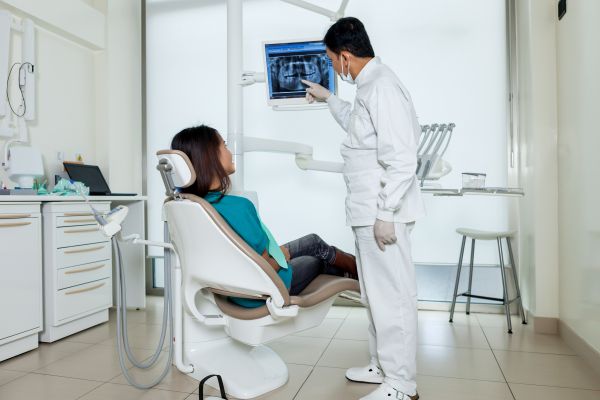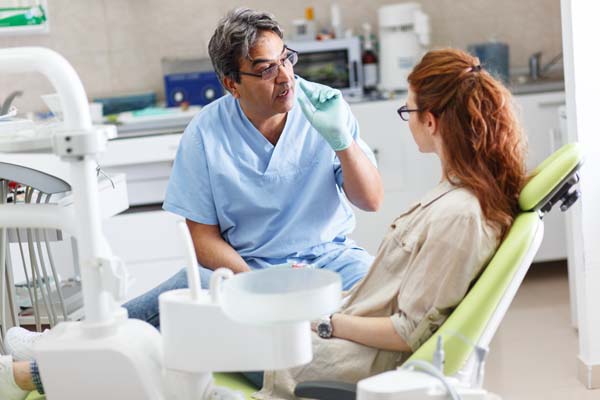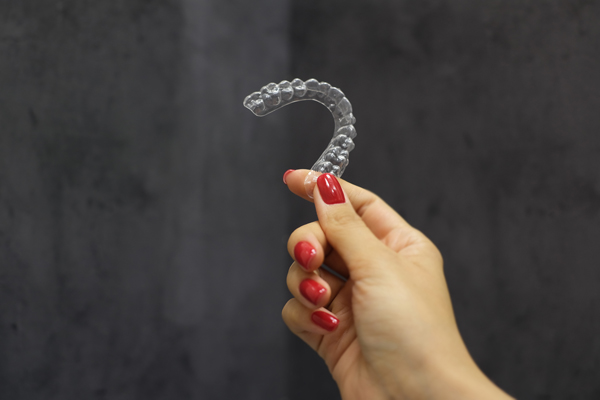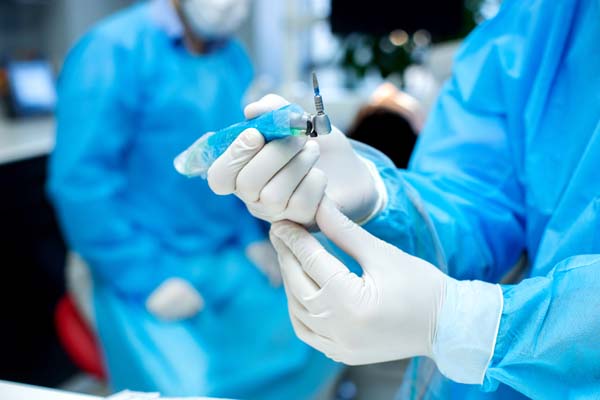Do I Have Sleep Apnea Middleburg, FL
If you feel as though you have no energy and are too tired to keep up with your friends and family, you should visit our dental office to talk about sleep apnea. This may be what is causing your issues, and a simple non-invasive treatment may be just what you need to feel like yourself again. To schedule an appointment with our dental office, call (904) 512-3054. We will be happy to discuss your treatment and then make a recommendation for how you should proceed.
What is sleep apnea?
Sleep apnea is a condition that makes it difficult for your body to receive the oxygen you need to properly function. Without enough oxygen, you will feel drained and sluggish, but since the condition manifests itself at night, most people have no idea that they have it.
How does sleep apnea impact a person’s health?
There are many health problems that can arise from untreated sleep apnea. They can include a stroke, high blood pressure, headaches, diabetes, depression, mood swings, heart failure, ADHD that becomes worse, and an overall lack of well being.
How does sleep apnea negatively impact a person’s life?
With enough oxygen, your body will have a difficult time functioning. Beyond the health effects, this can translate to not having enough energy to stay awake past dinner, enjoy your kid's birthday parties, go for a bike ride, or even drive your car. In fact, when you are tired, the basic and often mundane activities of life can put you to sleep. This can make it dangerous to get behind the wheel and could compromise your work performance. Essentially, your quality of life can be greatly diminished, making it critical that you visit a Middleburg dentist to have your sleep apnea treated.
What is the difference between sleep apnea and a sleep disorder?
Sleep apnea is a physical condition that makes it impossible to breathe clearly while you are sleeping. As a result, your body will not get enough oxygen to function at an optimal level. A sleep disorder can be one of the following:
- Insomnia. When it comes to sleep disorders, insomnia can be long-term or temporary. Often brought on by external factors like stress, insomnia can be treated with an oral medication.
- Narcolepsy. As a sleep disorder, narcolepsy is by far the worst. It can impact you throughout your entire life, making you feel so exhausted that you are forced to suddenly fall asleep, regardless of where you are or what you are doing. Narcolepsy is a true life disrupter.
- Restless leg syndrome. Commonly impacting pregnant women, restless leg syndrome can force your legs to move all throughout the night. Giving you a feeling of constant tingles or a burning and itching sensation, RLS can be highly distracting and impact anyone at any time. It helps to go for a walk or exercise during the day, since those who are sedentary tend to experience RLS more frequently.
- Jet lag. While most people view jet lag as a part of long-distance travel, it is a real sleep disorder, and if your body does not adjust well to the changes in time zones, jet lag could impact you for days or even weeks if you continue to travel from place to place. This disruption in your sleep patterns can make it difficult to get caught up on the rest you need, and may leave you feeling worn down to the point of potentially getting sick. Fortunately, this condition will eventually rectify itself when you get back home and stop traveling.
- Snoring. If you snore too loudly, you could wake up your Middleburg neighbors, your spouse, or just yourself. Many people cannot get a good night’s sleep because they snore too loudly, and this condition is often brought on by sleep apnea.
Check out what others are saying about our sleep apnea support services on Yelp: Do I Have Sleep Apnea?
What are the two main types of sleep apnea?
- Obstructive Sleep Apnea (OSA). When you have obstructive sleep apnea, your lower jawbone muscles will be too weak to hold your jaw in place as you sleep. As a result, it can fall backward and your tongue with it. Your tongue will then block your airway, making it impossible to breathe clearly while sleeping. This is why people with OSA will typically snore or sound like they are choking in their sleep. This is one of the signs that the body is trying to move the tongue in order to breathe. Another cause of OSA is having too much fatty tissue in the back of your throat. This is one reason obesity is a risk factor for OSA.
- Central Sleep Apnea. In this condition, the brain is responsible for the sleep apnea. By not sending signals to the muscles in charge of breathing, your body fails to respond as it should. This is not something that can be treated by a dentist, but instead, you will need to see a specialist.
How is sleep apnea treated?
At SouthLake Dental Care, we recommend that patients explore all non-invasive treatment options first. This is why we will often suggest that our Middleburg, FL patients wear a removable oral appliance. An oral appliance is a convenient treatment option because it does not make any noise and is incredibly discrete. Some patients also require the use of a CPAP machine to provide them with additional oxygen. The challenge with a CPAP is that it can be loud and uncomfortable to wear. The third treatment option for OSA is to have surgery to remove the extra fatty tissue blocking your airway.
How does an oral appliance work?
Wearing an oral appliance is incredibly easy. It is customized for your mouth specifically so it fits snugly and securely. As a result, you can simply slip it into place when you go to sleep. It remains in place inside of your mouth and does an excellent job of holding your lower jaw in the forward position. This prevents your tongue from falling backward and keeps your airway clear. Some people receive all of the benefit they need by wearing an oral appliance, while those with severe sleep apnea may also require the use of a CPAP machine at the same time. In this case, most patients report that their CPAP is far more comfortable than when they were using it as a standalone treatment option.
To learn more about sleep apnea or discuss your oral health in general, call 904-512-3054 and schedule an appointment with our Middleburg dental office. At SouthLake Dental Care, we are happy to discuss your health challenges and make recommendations, even if we have to refer you to a specialist for treatment.
Questions Answered on This Page
Q. Is sleep apnea a sleep disorder?
Q. What are the treatment options for sleep apnea?
People Also Ask
Definition of Dental Terminology
- Cosmetic Dentistry
- Cosmetic dentistry is generally used to refer to any dental work that improves the appearance (though not necessarily the function) of a person’s teeth, gums and/or bite.
- Decay
- Tooth decay is when the enamel of the tooth begins to decay and cause erosion from plaque and tartar on the teeth.
- Dental Caries
- Dental caries are also known as cavities and result from a lack of proper oral hygiene leaving plaque that forms tiny holes in the teeth.
- Dental Checkup
- A dental checkup is an appointment that involves cleaning the teeth, identifying any signs of infection and removing said signs of infection at least once every six months in the office.
- Dental Filling
- A dental filling involves restoring the structure of the tooth by using metal, alloy, porcelain or plastic to fill the tooth.
- Dental Prophylaxis
- A dental prophylaxis is a professional and detailed cleaning that involves the removal of plaque, calculus and stains from the teeth.
- Dental Sealants
- Dental sealants contain a resinous material that we apply to the chewing surfaces of the posterior teeth to prevent dental caries.
- Dentist
- A dentist, also known as a dental surgeon, is a doctor who specializes in the diagnosis, prevention, and treatment of diseases and conditions of the oral cavity.
- Gingivitis
- Gingivitis is the inflammation of gum tissue that results from plaque, other infections in the mouth and poor oral hygiene.
- Preventive Dentistry
- Preventive dentistry is the dentistry that focuses on maintaining oral health in order to prevent the spread of plaque, the formation of tartar and infections in the mouth.
- Tartar
- Tartar forms when plaque builds up on the surface of the teeth and calcifies into a hard surface that is much more difficult to remove and will require professional treatment.
- Tooth Enamel
- Tooth enamel is the protective visible outer surface of a tooth that contains the dentin and dental pulp.
Back to top of Do I Have Sleep Apnea?




